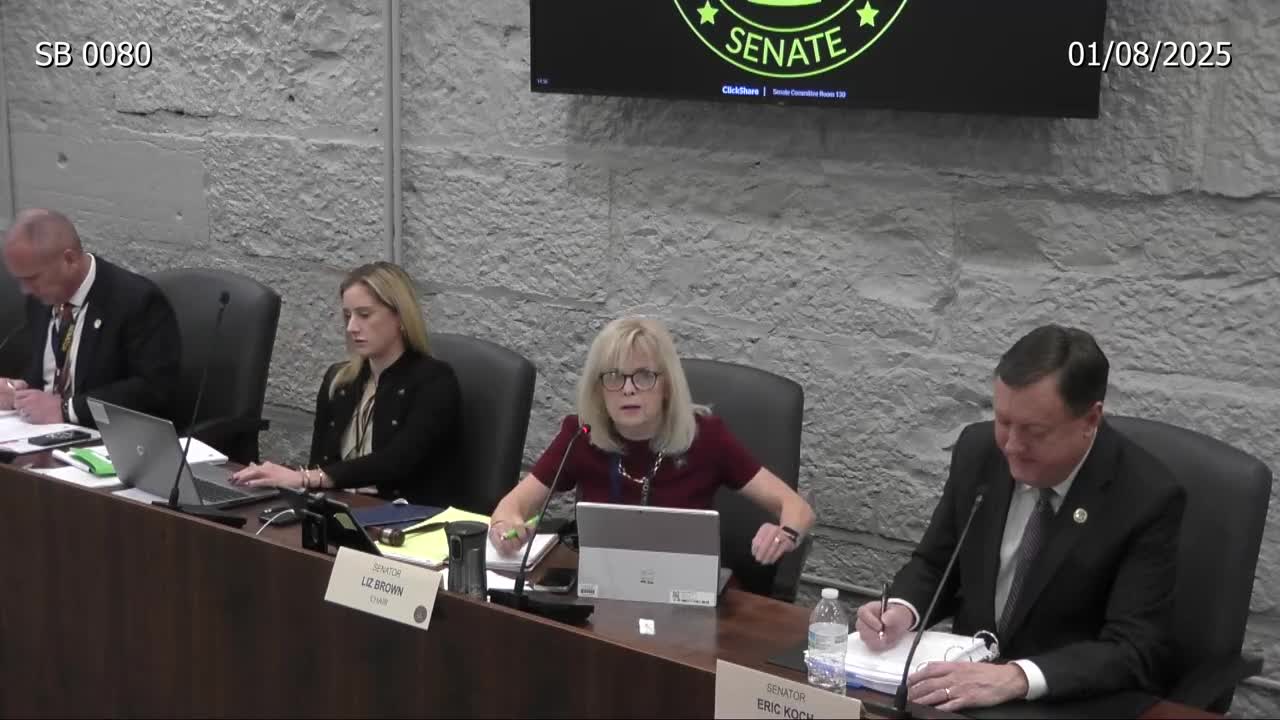Committee hears hours of testimony on parental-rights bill; chair to hold for amendments
Get AI-powered insights, summaries, and transcripts
Subscribe
Summary
Senate Bill 143, a proposal to codify parental rights and create a private cause of action against governmental entities, drew extensive testimony from parents, attorneys and advocacy groups. The Judiciary Committee held the measure for amendment and plans to vote next week after drafting immunity clarifications for public defenders and others.
Senate Bill 143 — a broad parental‑rights measure that would declare parental rights fundamental and create a statutory cause of action against governmental entities — drew extended testimony and robust questioning at the Indiana Senate Judiciary Committee. The committee received detailed first‑hand accounts from parents who said Department of Child Services (DCS) actions harmed their families, as well as legal analysis and pushback from civil‑liberties advocates.
The bill’s sponsor framed SB 143 as codifying the federal constitutional standard that parents have a fundamental right to the care, custody and control of their children. Supporters argued it would give parents a clearer remedy in state court if a governmental agency, school, or caseworker oversteps without a court finding of abuse or neglect. Opponents and some senators raised concerns about sweeping scope, potential interference with child‑welfare responses, and litigation risk.
Testimony: Multiple witnesses recounted lengthy and painful DCS cases. Miranda and Grant Phillips testified their two children were removed after a medical incident in December 2022; they said the children were separated from the family for months while the parents later learned the youngest child has Ehlers‑Danlos syndrome, a connective‑tissue disorder that can produce bone fragility. They described getting "18 hours of time with our children a week" in a supervised setting for months and said their case was dismissed Dec. 7, 2023. Attorney Dawn Marie White, who represents families in abuse/neglect cases, told the committee she litigates monthly to obtain parents’ access to medical records and said denials of access frequently occurred pre‑adjudication, hampering parents’ ability to prepare a defense and obtain appropriate medical care. Jordan Carpenter of the Alliance Defending Freedom, representing out‑of‑state parents, testified in favor of the bill and said the measure was intended to protect parents’ fundamental rights while preserving governmental immunities. Several witnesses, including an attorney who represented the Cox family, said existing remedies are difficult to pursue and argued a statutory cause of action would provide accountability when state processes and caseworkers overreach.
Concerns aired: Senators and other witnesses repeatedly queried the bill’s scope. Committee members asked if the bill would let parents compel access to medical procedures or supplies that state law already prohibits (sponsor testimony clarified the bill excludes affirmative parental rights to procedures that are out‑of‑bounds under existing law). Legal experts warned that the strict‑scrutiny standard the bill applies (requiring a compelling governmental interest and least‑restrictive means to burden parental rights) is a high bar that could generate litigation over ordinary child‑welfare decisions. Multiple senators pressed whether the bill would allow parents to sue individual caseworkers or judges; supporters said language preserves immunities for judicial officers and that claims would ordinarily be against governmental entities. Senator Brown told the committee she planned an amendment adding language to preserve attorney‑client privilege for public defenders and to address other narrow immunity questions.
Committee action: Chair Brown announced SB 143 would be held for amendment and a committee vote next week. Several senators said they want more drafting and clarifications, including refining the definition of "governmental entity," clarifying procedures for access to medical records in expedited hearings, and adding explicit safeguards for law‑enforcement investigations and existing exceptions where courts may restrict parents’ access.
Why it matters: The bill concerns the balance between parental authority and the state’s role protecting child safety through DCS, schools and law enforcement. Supporters say it will give parents an effective statutory remedy; critics say the measure is broad, risks unintended consequences for child welfare practice and invites litigation. Committee members signaled they will work on targeted amendments to the bill before next week’s vote.
Source excerpts: Witness testimony from parents and attorneys, committee Q&A and sponsor comments were recorded across the hearing.
